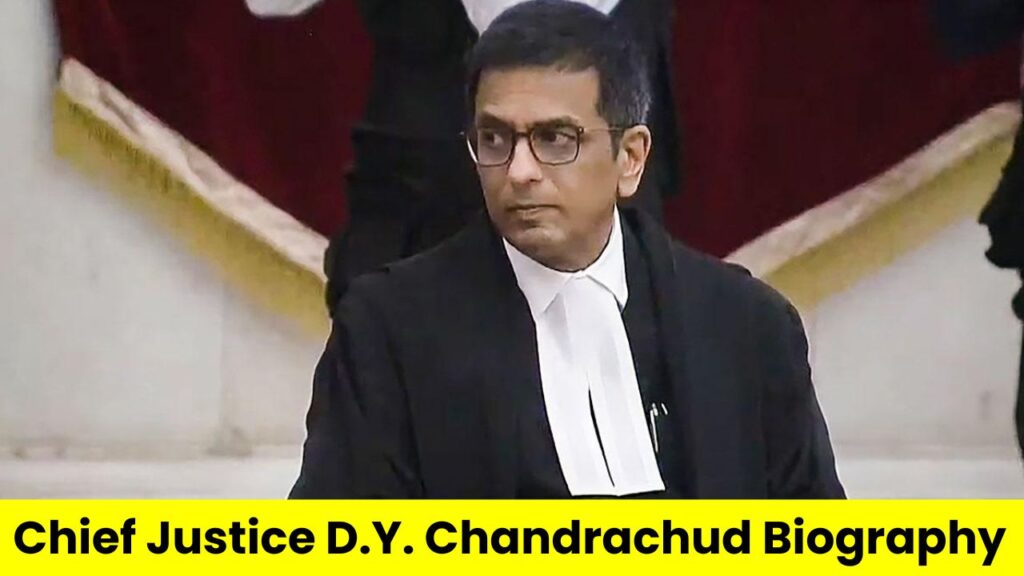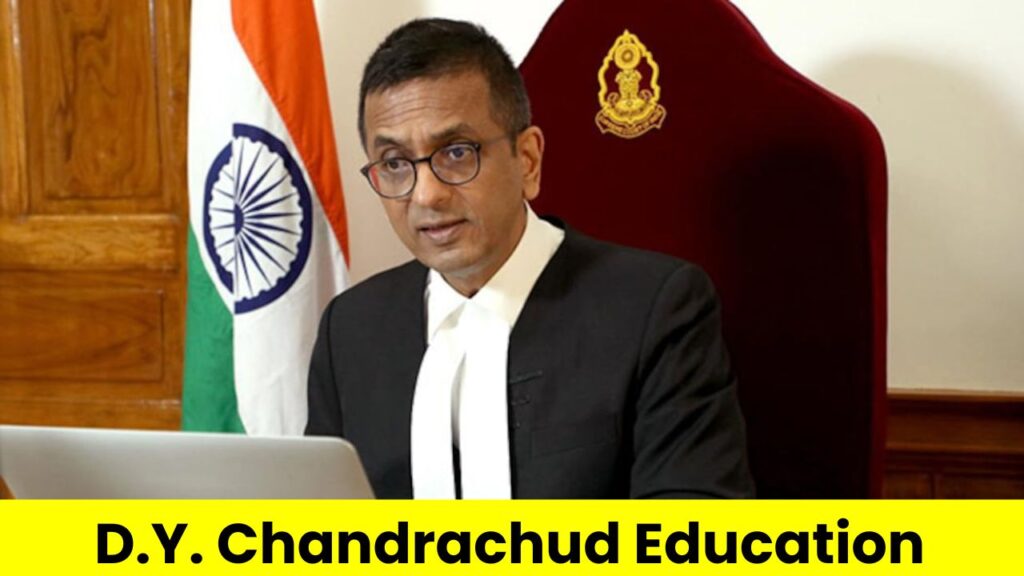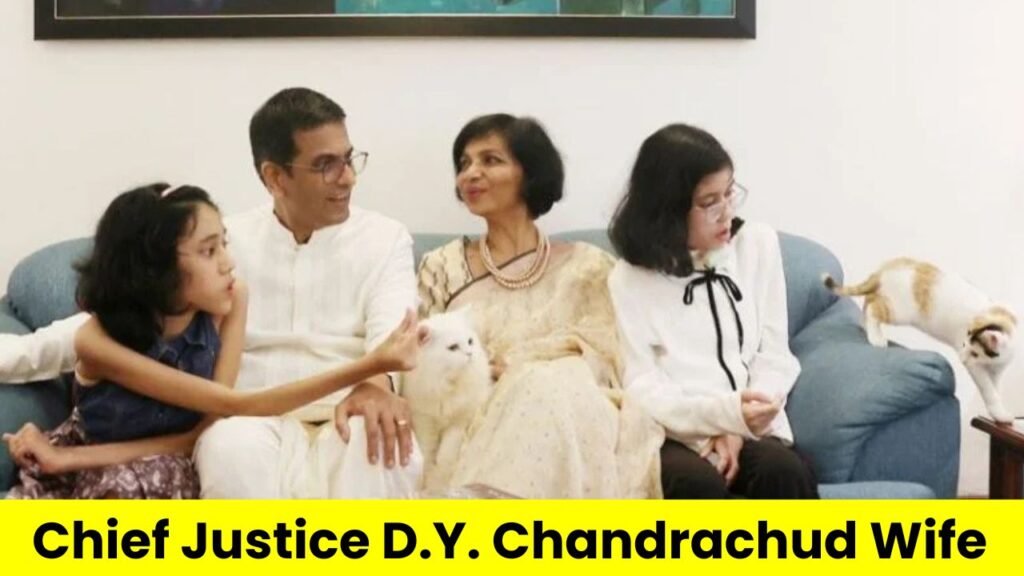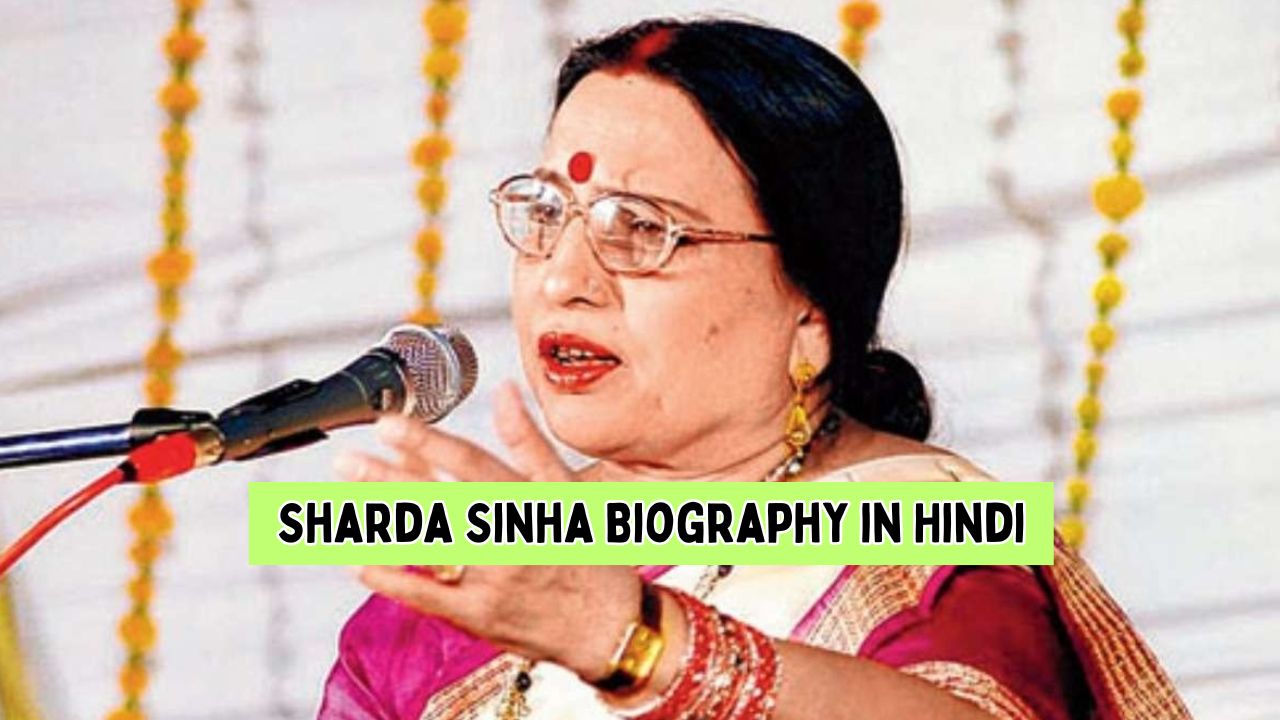Dhananjaya Yeshwant Chandrachud, widely recognized as D.Y. Chandrachud, was born on November 11, 1959, in Bombay (now Mumbai), India. Coming from a family with a deep-rooted legacy in law, his father, Yeshwant Vishnu Chandrachud, served as the 16th Chief Justice of India, becoming the longest-serving Chief Justice in Indian history. With four generations of legal professionals in his family, this legacy set the foundation for D.Y. Chandrachud’s own illustrious career in the legal field.

Contents
Education
D.Y. Chandrachud completed his early schooling at Cathedral and John Connon School in Mumbai and St. Columba’s School in Delhi. He later attended St. Stephen’s College, Delhi University, where he graduated with honors in Economics and Mathematics in 1979. He pursued a Bachelor of Laws degree at the Faculty of Law, Delhi University, graduating in 1982.

Demonstrating exceptional academic dedication, he furthered his legal studies at Harvard University, where he earned his Master of Laws (LL.M) degree in 1983, supported by the Inlaks Scholarship. His performance earned him the Joseph H. Beale Prize for excellence in Conflict of Laws. His academic journey culminated in a Doctor of Juridical Science (SJD) degree in 1986, where his dissertation focused on affirmative action.
Early Legal Career
After completing his education, Chandrachud joined the Bar Council of Maharashtra and began his legal practice at the Bombay High Court and the Supreme Court of India. In his early career, he focused on social justice, representing marginalized groups such as bonded women workers, HIV-positive workers, contract laborers, and minorities.
In June 1998, at just 39, he was designated a Senior Advocate by the Bombay High Court, recognizing his expertise and contribution to law. The same year, he was appointed Additional Solicitor General of India, a post he held until he transitioned to the judiciary.
Between 1988 and 1997, Chandrachud also served as a Visiting Professor of Comparative Constitutional Law at the University of Bombay, reflecting his commitment to legal education.
Judicial Career and Rise to Chief Justice
Chandrachud’s journey as a judge began on March 29, 2000, when he was appointed an Additional Judge of the Bombay High Court. His tenure there was notable for a focus on social justice and a feminist perspective in judgments, influenced by his colleague Justice Ranjana Desai.
In October 2013, he was appointed Chief Justice of the Allahabad High Court, marking a significant step in his judicial career. His rise continued with his appointment to the Supreme Court of India on May 13, 2016. The pinnacle of his judicial career came on November 9, 2022, when he was appointed as the 50th Chief Justice of India, succeeding CJI U.U. Lalit. His tenure emphasized judicial reforms and technological advancements to make justice more accessible to the public.
CJI Chandrachud served as the Chief Justice until November 10, 2024, when he was succeeded by Justice Sanjiv Khanna.
Notable Judgments and Legal Philosophy
CJI D.Y. Chandrachud’s legal philosophy centers on individual rights, social justice, and constitutional morality. Some of his landmark judgments include:
- Right to Privacy – K.S. Puttaswamy v. Union of India (2017): Chandrachud played a crucial role in recognizing the right to privacy as a fundamental right, shaping the future of privacy and data protection laws in India.
- Decriminalization of Homosexuality – Navtej Singh Johar v. Union of India (2018): As part of the bench that decriminalized same-sex relations, Chandrachud emphasized the importance of individual autonomy and personal freedom.
- Sabarimala Temple Entry – Indian Young Lawyers Association v. State of Kerala (2018): He supported allowing women of all ages into the Sabarimala temple, emphasizing gender equality and challenging traditional norms.
- Decriminalization of Adultery – Joseph Shine v. Union of India (2018): Chandrachud argued that adultery laws were based on patriarchal notions and violated women’s autonomy, leading to the law’s removal.
- Electoral Bonds Scheme – Association for Democratic Reforms v. Union of India (2024): Leading a bench that struck down the Electoral Bonds Scheme, he emphasized transparency in political funding as essential for democracy.
Chief Justice D.Y. Chandrachud Wife

CJI Chandrachud’s personal life has been marked by both achievements and challenges. He lost his first wife, Rashmi, to cancer in 2007, and later married Kalpana Das, a lawyer. He has two sons, Abhinav and Chintan, who have continued the family’s legacy in law. Known for his humility, he maintains a low-key lifestyle despite his high-profile position and has a passion for cricket and music.
In his public speeches, Chandrachud frequently emphasizes integrity, transparency, and inclusiveness. He advocates for live streaming of court proceedings to increase transparency in the judiciary.
Impact on the Indian Judiciary
CJI Chandrachud’s tenure has been transformative. His judgments reflect a progressive interpretation of the Constitution, and he tackled challenging issues such as privacy rights, gender equality, and freedom of expression.
His commitment to judicial reform and the use of technology in improving access to justice has set new standards in the legal system. By upholding constitutional morality and individual rights, he has greatly influenced the judiciary’s approach and shaped public discourse on legal matters.
Conclusion
From a promising lawyer to the Chief Justice of India, CJI D.Y. Chandrachud’s career reflects a deep commitment to justice, innovation, and inclusivity. His judgments and reforms have left an indelible mark on the Indian judiciary, positioning him as one of the most influential legal minds in Indian history. His legacy as a jurist who balanced tradition with progress cements his place as a transformative figure in the country’s legal landscape.
If you liked this Sharda Sinha Biography in Hindi post and it helped you then consider sharing it with your friends. Also don’t forget to bookmark our site Hindijankaripur.com for more such posts.
